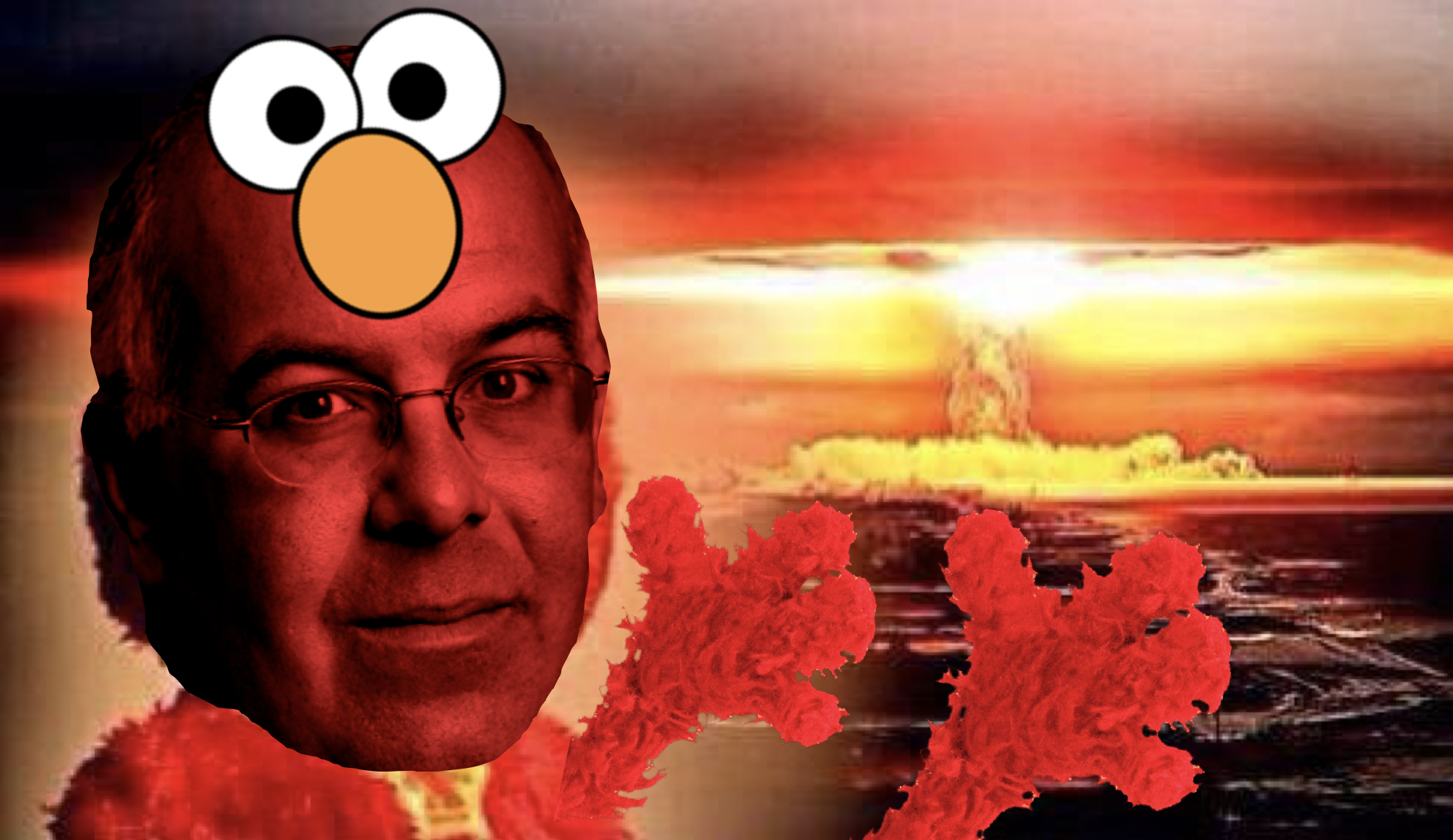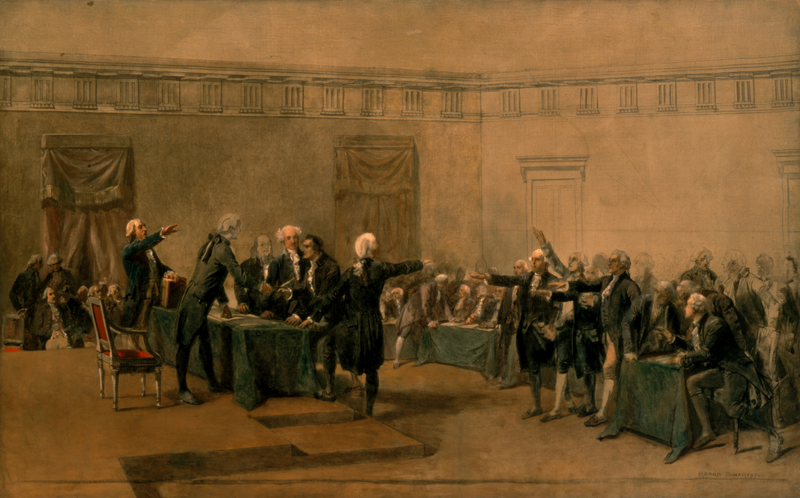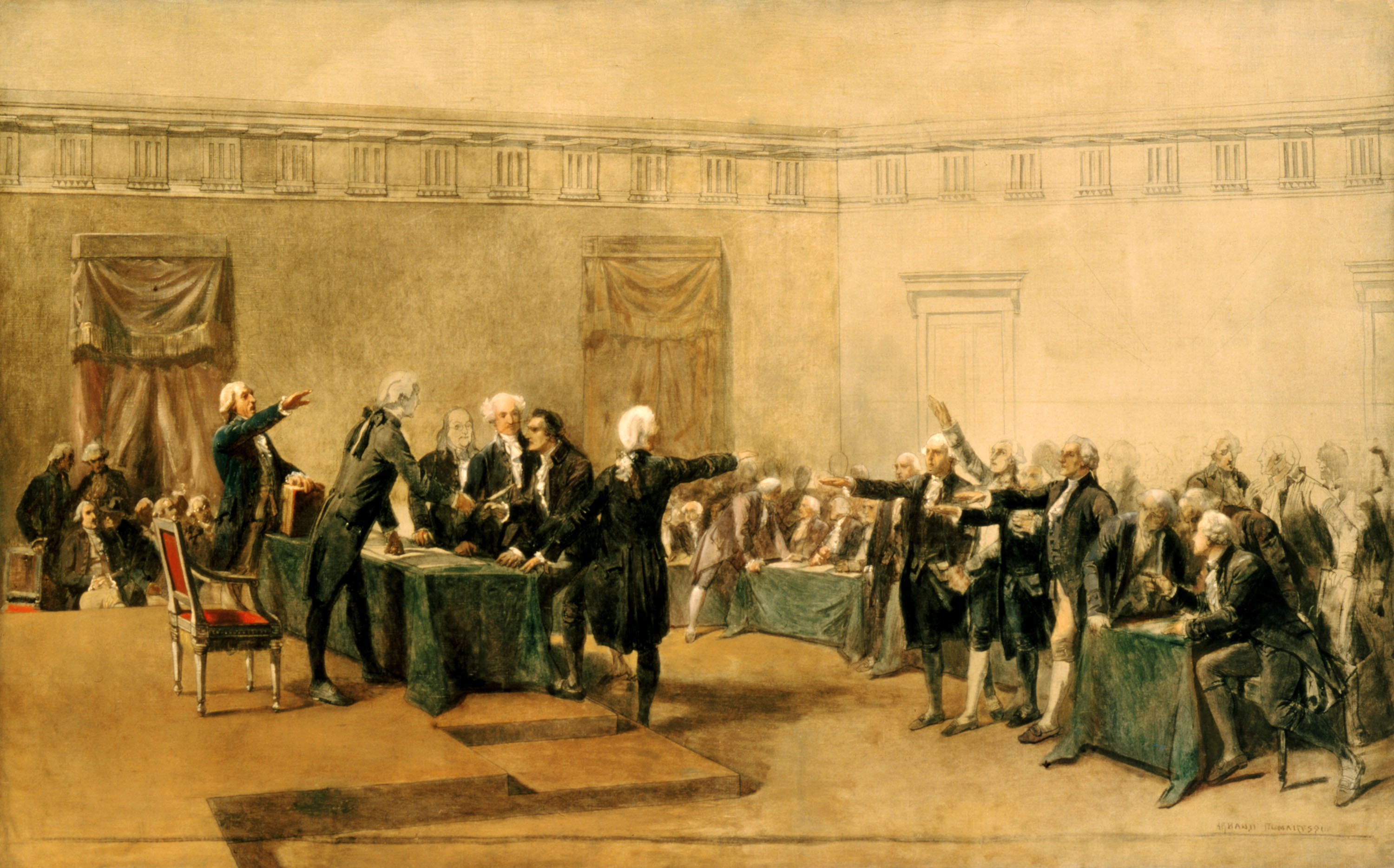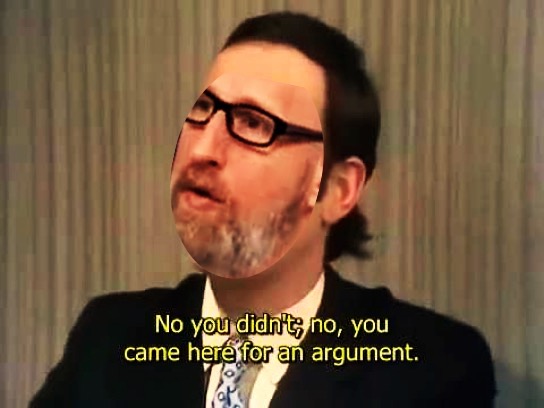Democracy and despotism in a digital age.
The Extended Family Can’t Replace the Immediate Family

David Brooks’s Mistaken “Mistake”
David Brooks’s essay in next month’s Atlantic is causing quite a stir. The headline grabs you, and it’s meant to: “The Nuclear Family was a Mistake.”
He rightly draws our attention to the anxiety of family life today. Moms and dads try to do it all at work, have it all at home, and be it all for their children. The many people in our society who do not hold that model as their personal ideal, whether because they are widowed, divorced, gay, or young and still trying to get their feet under them (the average age of first marriage is now nearly 30) also suffer.
Whatever our station in life, every one of us needs strong, close relationships—people who celebrate our wins and have our backs when times are tough. And that includes, perhaps especially, moms and dads in traditional nuclear families. They are often struggling, isolated in their home-car-work-car-home patterns.
Part of the reason social media has been abuzz about the piece since it was released is because Brooks has the subtlety to be alert to the problems in this area, unlike (say) Michael Strain over at AEI who assures us everything’s fine. You can have any work or home arrangement you want, Strain assures us, as long as it’s everyone working full time. He hopes we’ll ignore people’s actual desires for more flexibility (to spell it out as bluntly here as the Gallup report does might give Dr. Strain the vapors, but everybody else should click the link).
Even in professions such as law and medicine, many people (especially women) prefer part-time arrangements. One doesn’t have to be trapped in a sexist nostalgia loop to think that when—up and down the education and pay scale—people tell you over and over that they think it best for them and their families that they work part time, maybe you should listen. Given that society is entirely dependent on families for its very existence and future, the focus of the conversation about work-life balance should start with what’s best for families.
On that score, Brooks says that examining our past reveals something that could help us all—the extended family.
Until recently, Brooks says, people typically lived in groups much larger than the nuclear family, surrounded by near and distant relatives who helped with the work, childcare, and community obligations that are necessary or conducive to a flourishing life. Brooks commends this looser network of relatives to us, but in a modern articulation: friends so close that they become family, or what he calls “fictive kin.”
I will give a second cheer to the essay. I applaud Brooks’s emphasis on the importance of extended family, close friends, and the wider network of support needed to raise children while remaining sane—and how it reverberates across the human lifespan from children to seniors.
Seniors are not only (often) experienced caregivers and former professionals living much longer than in previous centuries, but they are also the recipients of the largest share of public welfare expenditures. We ought, if only—but not only, of course—for financial reasons, to be keenly interested in how to diminish the mental and physical health issues they experience related to isolation and loneliness. The rejuvenation of the extended family can help address seniors’ isolation while at the same time addressing the stress of modern family life, and Brooks should be lauded for bringing this neglected natural possibility to our attention.
But the rest of his essay is confused, which is why I withhold a third cheer. He at once raises the ideal of the extended family too high and cops out with a settlement (“chosen families”) that aims too low.
Working Parents
Both men and women spend more time today raising children than they did during the period he cites as the heyday of the nuclear family (see on this subject Jonathan Last’s What to Expect When No One’s Expecting from 2013). We all (men and women) also do more paid work, which may partly explain why we’re so stressed out and tired.
These increases in time spent on childcare and work lead me to suspect that Brooks’s characterization of women’s lives in the past, while perhaps a necessary nod to the Atlantic’s wokeminders, shortchanges women. Someone was weaving the strong social fabric that made the dullness and misery of (mostly men’s) factory work worth the sacrifice such that people reported fulfilment with their lives. Someone was creating the conditions and building the institutions of high social trust. And I’m betting I know who it was, at least more often than not.
Technology and Divorce
On the broader context and framing of the problem (and at some risk of committing the fallacy of criticizing a piece for not being the one I would have written):
How do you write a long-form essay on the travails of fertility and family in the 20th century and not mention widespread uptake of The Pill, which reliably separated sex and the bearing of children (as Mark Regnerus detailed out in 2017’s Cheap Sex) for the first time in human history?
How do you write a long-form essay on the travails of fertility and family in the 20th century and not mention the legalization of abortion and the resulting tens-of-millions of statistically missing people?
How do you write a long-form essay on the travails of fertility and family in the 20th century and not mention the significant increase in, and normalization of, divorce in the wake of no-fault divorce and other family-law changes that stacked the deck against family stability?
These three factors contribute to the phenomenon Brooks conjures from Avalon of harried parents with only two children, TV dinners, and then, in the end, the main character alone in a nursing home wondering how it all came to this.
Kinship
Downplaying the relatedness of kinship groups is unwise. Brooks draws on anthropologists’ work to claim that in the past kinship groups have often been made of unrelated people. I am very skeptical of this claim, and you should be too.
Compared to other animals, humans are weird in lots of ways. But I doubt that for large swathes of human history we felt stronger ties to people who were not blood relatives than to people who were. In the rest of the animal world (especially among mammals), most packs are not random adults but families and groups of families (see Mary Eberstadt in her 2019 book Primal Screams).
Most likely, Brooks’s anthropologists cherry-picked a few exceptional examples. I’m not an anthropologist, but there’s plenty of evidence from the rest of mammalian critters cutting in the opposite direction, to say nothing of human history.
In any event, as Kay Hymowitz has already noted in response, Brooks is mistaken that people used to live in much larger groups—if by “used to” we mean anytime in the recent half-millennium.
As James Q. Wilson noted in The Marriage Problem (2003), the single-family household has been the standard in Anglo-influenced areas for hundreds of years and is linked to the private (as opposed to clan or corporate) ownership of land. I took a glance at household size in historic census numbers and it simply is not true that the nuclear family in a single-family house is a novelty of recent times.
The factual premises undergirding his entire argument are false.
The Beaten Path
Let’s not get so caught up in the distant-relation and forged family weeds that we lose sight of the beaten path to happiness.
Charles Murray explains in Coming Apart (2013) that four factors explain most (but not all) of the gap between the happiest Americans and the most miserable: 1) a good marriage, 2) church participation, 3) high social trust, and 4) meaningful work. For people to be personally happy and successful, most of them should graduate high school, find meaningful work (be it for money or the community), get married, and get involved in church.
As a society, we need them to have kids (lots would be better than few) even for practical reasons: so that there’s still Social Security and Medicare for us when we’re old, for instance.
Stable marriages are what most directly yield more kids. Having extended family—and, granted, friends so close they might as well be family—around will no doubt help support them. I can well imagine forged families would also help reduce the stress and expense currently surrounding childcare and so make abortion less appealing as an escape valve.
It’s welcome news that, as Brooks points out, parents today are willing to live with their adult children and that middle-aged folks will take in their parents. But Brad Wilcox and Wendy Wang have shed some light on exactly who these folks currently are—and the reason for their togetherness is not as rosy as it may at first appear. That said, it would be wonderful if my mother-in-law lived closer—she’s a mother of six, and I feel like an amateur handing my son off to a pro whenever she’s around.
The Inverted Family
Brooks’s main point is solid: people are better off living in community than alone. But it leads him to his most fundamental error, mistaking the “core” of the family for its “periphery” and inverting the relationships.
Aristotle helpfully distinguishes the “focal” case from the “derivative” case. For any X, the focal case is the exemplar in terms of which every other instance of X is an instance of X. All the derivatives bear a relationship to the focal case and to one another in virtue of the focal case, but none of the derivatives is as complete as the focal case.
For the family, the focal case is what we call the nuclear family (mother, father, children), and the extended family and forged family are derivative of it. Extended families are related by virtue of multiple sets of mothers, fathers, and children. Forged families have bonded so tightly that they resemble the strongest bonds humans normally possess: the connections between husbands and wives, parents and children. The nuclear family (as the term implies) is the core of a network of relationships in which human beings find the answer to the question of who they are.
Brooks inverts the priority of focal (nuclear family) relationships and their derivatives (extended and forged family relationships).
The Chosen Family
What Brooks gives with one hand, he takes away with the other.
A large part of what makes family distinctive is that it’s not chosen. Its bonds are so strong they are either impossible or exceedingly difficult to break. There’s a lot to be learned about life in negotiating relationships with people who aren’t convenient for us and don’t think the things we think or like the things we like. We can’t get rid of our family just because their political views are odious or they always seem to be making poor choices with money and alcohol.
A culture of easy divorce and contraception may be occluding it from our view, but part of what makes husband and wife family rather than mere roommates is that they’re permanently joined. In every era before ours, even if they separated (which was rare), it was understood that spouses had children that linked them indelibly. This is still the case in principle, no matter how we’d like to ignore it.
“Forged families” can be more like families than friend groups, but only if the forging crucible is hot enough to make those relationships nearly unbreakable. I reckon those conditions are considerably rarer than what Brooks romanticizes in his essay. He recognizes that “fictive kin” aren’t kin, but his argument proceeds as if they are just as much kin as mother and child. But they aren’t.
Robert Frost does a better job summarizing family by way of talking about home: “Home is the place where, when you have to go there, / They have to take you in.”
Brooks even seems hopeful that chosen families will overtake the nuclear family in importance and centrality. Not only does that seem unlikely in most cases, but the result would be nothing short of catastrophic.
The Extended Family Can’t Replace the Immediate Family
The nuclear family has had a rough half-century, it’s true.
We would do well to respond to the pressures and stresses of contemporary life by extending the outer boundaries of family life without abandoning the inner core of our immediate family. We should open our lives more to cousins, grandparents, and great aunts, as well as close friends, be they single or couples.
I have seen the mutual gifts of these relationships in my own home: they have no idea how great a blessing they are to us, and my family has something to offer these friends and relatives too. Only those who have been the parents of a toddler truly understand the joy of a cup of coffee in silence, or the stress relief of a trusted friend supervising our children’s mayhem so a husband and wife can sustain a conversation with other friends.
Brooks helpfully draws our attention to these truths.
But the argument gets away from him when he claims the nuclear family was the factitious innovation of late-modern industrial society and has outlived its usefulness. Perhaps unwittingly, by inverting the proper priority of family relations Brooks makes the extended family and the forged family rivals to the nuclear family instead of close kin.
That’s the real mistake. Without a strong core, the periphery will collapse, too.
What we need in our politics and policy is not to redefine families, but to support and strengthen them.
We need to rid social programs of marriage penalties. We need a tax code that treats families better than corporations. We need an education system that recognizes parents have the duty and right to educate their children, and schools are there to help. We need a public square –both physical and online – where all of us adults are looking out for children. We need labor policies that give families more flexibility.
We need to ask of every program and policy proposal: how will this affect families?
Perhaps just as importantly, we need widespread, public recognition that the nuclear family is the solid foundation upon which extended families, forged families, and every other social and political institution depends.
The American Mind presents a range of perspectives. Views are writers’ own and do not necessarily represent those of The Claremont Institute.
The American Mind is a publication of the Claremont Institute, a non-profit 501(c)(3) organization, dedicated to restoring the principles of the American Founding to their rightful, preeminent authority in our national life. Interested in supporting our work? Gifts to the Claremont Institute are tax-deductible.






